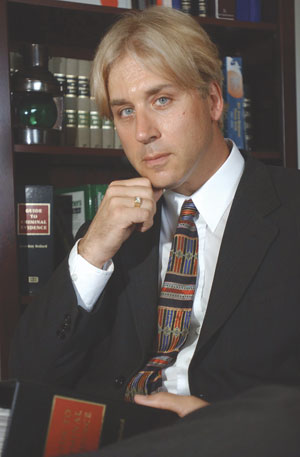The Superior Court of Justice has put yet another Thunder Bay, Ont., jury trial on hold until this week over an issue that could potentially open the province up to a slew of appeals from criminal lawyers challenging the racial makeup of juries.

“A person has a right to a trial by a jury of peers who are representative of the region in which they are tried,” says Thunder Bay lawyer Christopher Watkins, who argues that right can apply to all jury members whether the issue at hand involves First Nations representation or another community that makes up a significant population in a region.
In his view, a jury that isn’t reflective of the community is contrary to a client’s rights. “Many northern districts, including Thunder Bay, have very large First Nations populations that are not adequately represented within Ontario juries,” says Watkins.
As a result, Watkins believes other jury trials across the province could face delays until the courts decide whether or not there’s enough First Nations representation. If that’s the case, it could become an important issue that could force the province to change the way it selects jury members.
Superior Court Justice John McCartney reopened the issue following a motion by Watkins in September. McCartney ruled in favour of Watkins’ motion, causing a delay in the fraud trial of Krystyna Iwona Dolasinski until the court could examine the jury’s makeup. The court will determine a trial date for the issue following a pretrial on Oct. 17.
McCartney’s ruling marks the latest in a series of cases involving such matters since March 2011.
In the first case, the Ontario Court of Appeal ordered an inquiry into the representation of people in the Thunder Bay region, specifically First Nations, on juries there.
That decision followed requests by the families of Reggie Bushie, who drowned in Thunder Bay’s McIntyre River in 2002, and Jacy Pierre, who died of a drug overdose in a Thunder Bay district jail in 2007. Both deaths were the subject of a coroner’s inquest, but the families appealed over concerns the juries didn’t have enough aboriginal representation.
From there, regional coroner Dr. David Eden authored a report on aboriginal representation on the Thunder Bay jury roll. Eden ordered Thunder Bay’s court services to redo the roll, a process that’s now ongoing within the provincial government.
According to the Juries Act, names of potential jurors come from the most recent voters lists that the Ministry of the Attorney General gets from the Municipal Property Assessment Corp.
Yet according to documents obtained by CBC Radio through a freedom of information request, it was just one complaint to Indian and Northern Affairs Canada citing privacy concerns that caused the federal government to stop providing lists of First Nations band members to all provinces about 10 years ago.
That decision created a significant problem for provinces like Ontario that rely on those lists to select aboriginals for jury duty.
Aboriginal groups, however, aren’t buying the privacy argument. “We represent quite a significant population in both the Thunder Bay and Kenora districts but found, particularly in Kenora, that there weren’t any First Nation members being fairly represented by the Ontario justice system,” says Nishnawbe Aski Nation deputy grand chief Terry Waboose.
Waboose notes his organization was unsuccessful in trying to work with the provincial government on the issue in the past. “The band list privacy issue was used as a rationale for not providing lists of First Nation band members to Ontario for jury duty,” he says.
Nevertheless, the Nishnawbe Aski Nation has since agreed to work with former Supreme Court justice Frank Iacobucci on the issue. He’s currently conducting a review of aboriginal representation on Ontario juries.
“When you are judged by a jury of your peers, wouldn’t you think the jury, within a trial or inquest by jury, should be representative of all significant populations for that particular area?” Waboose asks.
“We’re excluded, and there’s something wrong there. The answer lies with how the province conducts work, with how they get lists for jury duty, and that’s why we agreed to work with them to improve representation.”
The Dolasinski case follows a 2008 matter in Kenora, Ont., involving Clifford Kokopenace, who was convicted of stabbing his friend, Taylor Assin, to death during a 2007 fight on the Grassy Narrows reserve.
Unusually, the Court of Appeal put the manslaughter ruling on hold this past July in order to hear arguments about aboriginal representation on juries.
Watkins notes the potential for an eventual provincewide change on the matter is a possibility, depending on the court’s ruling. “I believe this is a significant human rights issue,” says Watkins.
The Ministry of the Attorney General will release a report on the matter as early as August 2012.
In the meantime, it says it will work with First Nations band members to find ways to increase their representation on jury rolls.

 “A person has a right to a trial by a jury of peers who are representative of the region in which they are tried,” says Thunder Bay lawyer Christopher Watkins, who argues that right can apply to all jury members whether the issue at hand involves First Nations representation or another community that makes up a significant population in a region.
“A person has a right to a trial by a jury of peers who are representative of the region in which they are tried,” says Thunder Bay lawyer Christopher Watkins, who argues that right can apply to all jury members whether the issue at hand involves First Nations representation or another community that makes up a significant population in a region.